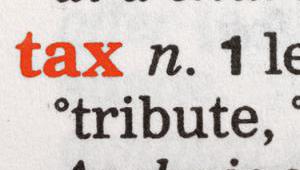By Keith Aitken in Edinburgh | 30 September 2014
The Convention of Scottish Local Authorities has defended moves by some councils to exploit the unprecedented rush of voter registrations ahead of the independence referendum to track down people who owe unpaid council tax or even poll tax.
Dismissing protests from Green Party leader Patrick Harvie and others that the offensive punishes marginalised people for exercising their duty to vote, Cosla said councils were entitled to use whatever legal information sources were available to them to pursue unpaid public debt.
‘Every pound of debt collected is a pound for frontline services,’ one COSLA official said. ‘Councils do not write off debts.’
The independence referendum brought an unprecedented number of voter registrations, as people flocked to be part of the historic decision.
By polling day on September 18, registration was standing at more than 4.2 million, an estimated 97% of those entitled to vote, and the turnout on the day was a record-breaking 84.6%, prompting even those disappointed by the outcome to hail the exercise as a triumph for democracy.
Both Aberdeenshire and Edinburgh councils have now confirmed plans to examine the new registration data for leads to those owing unpaid municipal taxes, and Conservatives are urging other authorities to follow suit.
In general, councils are not entitled to claw back historic tax debts beyond 20 years, which means that the massive shortfalls in poll tax payments will mostly be exempt, since the tax was abolished in 1993. But, exceptionally, older debts can still be pursued where warrants were issued at the time.
Meanwhile, Scottish Government figures published today show that more than half a million Scots are benefiting under the council tax reduction scheme, brought in jointly by Scottish ministers and Cosla to help vulnerable families after the UK coalition government abolished the nationwide Council Tax Benefit scheme in April last year.
Uptake has fallen by 2.7% since the Scottish scheme was introduced, but Finance Secretary John Swinney attributed this to recovery in the Scottish economy, as evidenced in labour market statistics.
Swinney said: ‘We are working hard to help those people in Scotland who are paying a heavy price for the UK Government’s welfare reforms. Today’s figures demonstrate our commitment to helping pensioners, families, lone parents and disabled people who are struggling to pay their bills.
‘It’s also encouraging to see the levels of people who require this support falling, at the same time as more people are able to enter the labour market and improve their household incomes.
‘We are outperforming the UK as a whole on the three headline labour market indicators but our ambition is to ensure that everyone is able to benefit from a growing economy.’




















